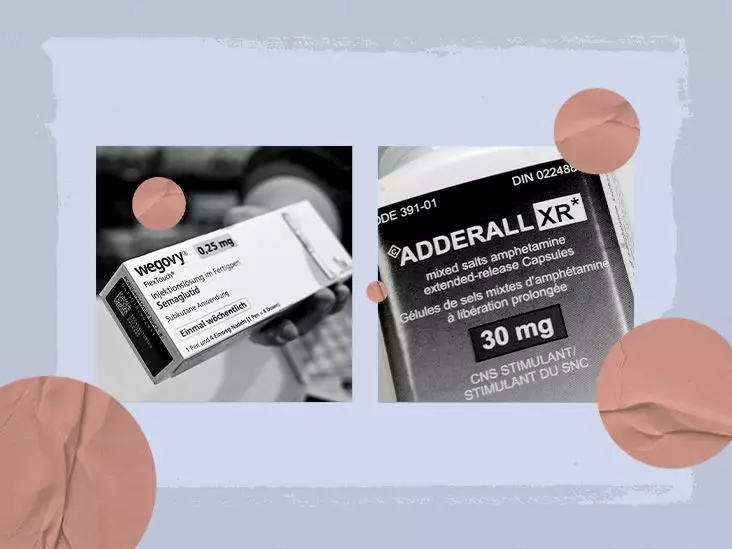Wegovy, a brand name for semaglutide, is primarily prescribed for weight management in adults with obesity or certain weight-related conditions. It belongs to a class of medications called GLP-1 receptor agonists, which work by mimicking the effects of incretin hormones, leading to reduced appetite and increased satiety. Adderall, on the other hand, is a central nervous system (CNS) stimulant commonly used to treat ADHD and narcolepsy. It comprises a combination of amphetamine salts that act on neurotransmitters in the brain, improving focus and reducing impulsivity in individuals with ADHD.
Given the rising prevalence of both obesity and ADHD, it’s crucial to understand how these two medications interact—or rather, do not significantly interact—with one another.
When we talk about drug interactions, it’s important to understand the principles governing these relationships. In pharmacology, an interaction occurs when the effects of one drug are modified by another substance, which may lead to increased side effects or decreased therapeutic efficacy. However, according to current medical literature, Wegovy does not exhibit any known interactions with Adderall or with other common ADHD medications such as lisdexamfetamine (Vyvanse) or atomoxetine (Strattera).
This finding sparks optimism for patients navigating the complexities of managing both conditions, but it does come with some important caveats. Although Wegovy does not directly interact with Adderall, it may influence the absorption of oral medications due to its pharmacodynamic properties. As a GLP-1 receptor agonist, Wegovy slows gastric emptying, which can affect the absorption rates of concomitant medications taken orally.
Monitoring and Adjustment in Dosage
Given this slowing of gastric emptying, the potential for altered medication efficacy warrants ongoing monitoring for those taking Wegovy along with Adderall. Patients may experience changes in how effectively their ADHD medication works, which could necessitate discussions with healthcare providers to adjust dosages accordingly. It’s advisable for patients to be vigilant and report any noticeable changes in symptoms or side effects while on this combination of therapies.
Furthermore, both Wegovy and Adderall can lead to reduced appetite. While this might be beneficial for someone using Wegovy for weight loss, it could also lead to inadequate nutrient intake when combined with an ADHD medication, especially in pediatric populations. A decrease in overall caloric intake can be riskier for adolescents with ADHD, who require sufficient nutrition for optimal cognitive and physical development.
Potential Risks of Combined Use
The intersection of weight management and ADHD treatment brings with it a set of considerations beyond mere drug interactions. One significant risk is the potential for rapid weight loss. Although Wegovy is designed for this purpose, rapid weight loss can lead to negative health outcomes, including gallstones and nutrient deficiencies. In individuals who are already on Adderall—to decrease impulsivity and improve focus—these compounded effects can lead to a concerning cycle of inadequate nutrition and worsening overall health.
For this reason, collaboration with healthcare providers is imperative. A registered dietitian can offer insights and structured dietary plans that ensure adequate nutrient intake, helping to navigate the challenges posed by appetite suppression associated with both medications.
Ultimately, the decision to use Wegovy and Adderall in tandem should be made with the guidance of healthcare professionals. It is essential to inform doctors about all medications, supplements, and even dietary habits. This holistic approach empowers healthcare providers to identify potential risks and tailor treatment plans that optimize health outcomes. Regular follow-ups can help track not only weight but overall well-being, adjusting therapies as needed to enhance both mental and physical health.
While Wegovy is not known to interact adversely with Adderall, the complexities of their concurrent use highlight the need for thorough monitoring. With proactive management and informed communication with healthcare professionals, patients can responsibly navigate their treatment plans while minimizing potential risks.

